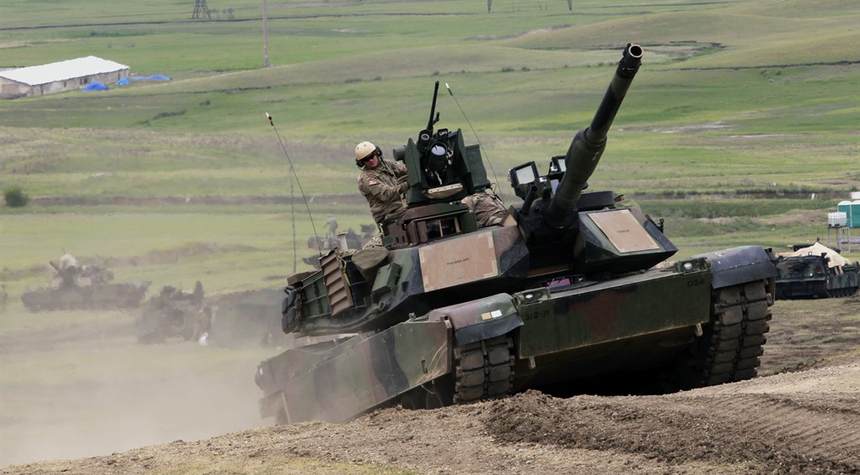President Joe Biden announced Wednesday that the US will send 31 M1 Abrams to Ukraine. This marks a significant departure in US policy from providing Ukraine only defensive weaponry to arming Ukraine to carry out offensive operations to drive Russia from that country. The 60-ton Abrams is widely considered to be the best tank in the world and has an unrivaled record for crew survivability, and will overmatch any tank the Russians have.
“These tanks are further evidence of our enduring, unflagging commitment to Ukraine and our confidence in the skill of Ukrainian forces,” Mr. Biden said, flanked by Secretary of State Antony J. Blinken and Defense Secretary Lloyd J. Austin III.
But he emphasized that the buildup was not meant to expand the war into Russia. “It is not an offensive threat to Russia,” he said. “There is no offensive threat to Russia. If Russian troops return to Russia, where they belong, this war would be over today.”
The thirty-one tanks will equip a single Ukrainian armor battalion. However, the tanks will not appear on the battlefield until the last half of 2023 due to requirements to train the crews in tank operations and tactics, and establish the supply chain to service and repair the M1s.
More important than the tanks is the message. The West has concluded that Putin not only has no intention of negotiating peace, but if he did, he is not a reliable partner in negotiations. So, the only remaining solution is to hand him a defeat on the battlefield that allows the war to end on Ukraine’s terms.
The decision seems to have been driven by one strategic and two practical issues.
The strategic issue is bringing this war to a close. Ukraine can prevent Russian battlefield gains and bring the war to a stalemate along the approximate line of contact that exists today. But, just as Russia doesn’t have the capacity to carry out a breakthrough operation, the Ukrainians also have offensive limitations. The war risks becoming yet another “frozen conflict,” where both sides use the pause to gather forces and supplies to fight again. There is incontrovertible evidence that Russia thinks it can gain some of its objectives, like creating a land bridge from Russia to Crimea, by ensuring such a frozen conflict. Russia has formally annexed four Ukrainian oblasts that it has no hope of occupying, but the claim to that territory will create a permanent casus belli.
The only way to break this stalemate is to give Ukraine the capability to force a Russian retreat. However, that capability requires tanks and units trained to use the tanks as a cohesive force, not just as a mobile cannon.
The practical issue was how many tanks and what kind.
If you read my update from last week (Week 47. Gerasimov Shakes Up the Russian Army and the Russian Spring Offensive Looms), you know the British government has committed to sending 14 Challenger 2 tanks to Ukraine. This was a token, but a vital one. The Challenger 2 is a superb tank and, like the Abrams, overmatches anything Russia can put on the battlefield. Unfortunately, the British Army has been allowed to deteriorate to an alarming extent and simply doesn’t have much to donate. The obvious tank was the German Leopard 2. The Bundeswehr and the manufacturer Rheinmetall have over 150 in storage. In addition, other European countries have volunteered to contribute tanks that could give Ukraine about 200, top-of-the-line tanks.
The Germans were unwilling to go along with the idea. The official line is that Germany is opposed to selling arms; the real story (in my opinion) is that Germany still has an eye on those contracts with Russia that have been suspended due to the war and was unwilling to do something to make Putin really mad. So, Germany’s position became a) we’ll not go first, and b) we’ll not go at all unless the US sends Abrams tanks.
While Russia’s mouthpieces are banging the drum of “escalation”:
Putin’s spokesman, Dmitry Peskov, basically said, “bring it on.”
Again proving that Putin’s fluffers really don’t know what they are talking about.
And, thanks to the hollowing out of the US Army, it isn’t like we’ll miss 31.

